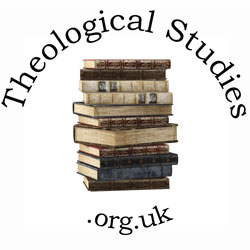The Life and Work of James Hudson Taylor
Rachel Thomas
Theology on the Web helps over 2.5 million people every year to find high quality theological resources that will help to equip them to serve God and to know Him better (2 Timothy 2:15). Like other websites that provide free services, it is dependent on donations to enable it to grow and develop and only 0.004% of visitors currently do so. If you would like to support this site, please use one of the options to the right of this message.
James Hudson Taylor 1832 - 1905
James Hudson Taylor was a man of faith, prayer, vision and innovation. Shortly after becoming a Christian at the age of 17 (in answer to the fervent prayers of his mother and sister) Hudson received the call to China the fulfillment of his parents prayers before he was born. The problem was that Hudson had always had poor health, but undaunted by this he started to prepare himself for his mission to China.
As well as trying to toughen himself up by taking long walks and sleeping on a hard mattress, Hudson realised that he would need to do something other that preaching to win the hearts to the Chinese people. Although he was the son of a chemist and had some training in that area, he realised that he needed to learn some medicine. So it was arranged for him to go to his uncle who was a doctor in Hull for him to learn some basic skills before training at a hospital in London.
It was there in Hull that Hudson first learnt his lessons of personal faith. Having moved out from his Uncle's so that he could learn to live on little, and give most of his wages away, Hudson one evening was asked if he could go and pray for an Irish labourers wife who was close to death. When he arrived by her side he found that her weak state was a result of child birth and severe hunger. He knew he should do more than pray, but he didn't have the money - only half a crown which he needed to live on. Yet he was aware that God had sent him to help this woman and unless he did what he could how could he expect God to take notice of his prayer. So he gave his money to the husband to buy food and trusted God to provide for his own needs. The following day the Lord provided half a sovereign through a gift from someone. This was the start of Hudson's life of faith.
He was certain from that moment onwards, that God would never fail those who trusted Him. f he gave what he had to God's work he would never make a fortune, There might be times when he would have nothing in the bank at all. But God was his Father, and would always provide for him. From that day forward, Hudson gave himself completely to doing God's work, leaving God Himself to provide what was needed to carry it out.
From then on Hudson lived by faith knowing that whatever the Lord asked him to do, He would provide. This was a position that Hudson was heavily ridiculed for, particularly when once in China he resigned from the Chinese Evangelism society, who sent him out, because of their failure to support him. Yet it is a tenet by which the Overseas Missionary Fellowship founded by Hudson Taylor (formerly Chinese Inland Mission) lives today and has been proved over and over again. Within this tenet was the refusal to go into debt and to survive until the Lord did provide.
Out of learning to live by faith Hudson became a man of prayer. Hudson had learned the importance and results of prayer through his parents and his belief in living by faith meant that he spent many hours on his knees. So important was power in prayer to him, that he decided he needed to prove himself in it before he went to China, otherwise he wouldn't go. Hudson proved the power of prayer throughout his life deciding that nothing was to big or too small to pray about, and thus became a man who knew God and reflected that knowledge in his life.
Hudson was a man of vision. Although there were many missionaries in the coastal cities of China, very few missionaries had ventured into the interior. Hudson had the vision for reaching the countless millions of Chinese in the inland towns and cities. So with a few of his early companions he made regular trips into the interior, and despite the suspicion and often violence of the locals eventually set up mission stations and hospitals where no other missionaries had been before.
Hudson was an innovator. When Hudson set up his missionary society , with ten pounds in the bank, after returning from China for a rest, he decided that the China Inland Mission should have six distinctive features that were quite different from other missionary societies at the time.
First, the missionaries would be drawn, not from any particular denomination, but from all the leading Christian churches - provided they could sign a simple doctrinal declaration. He wanted intelligent educated men and women, but was convinced that the crucial thing was the candidates' spiritual qualities. So the door was also open to those with little formal education.
Second, the missionaries would have no guaranteed salary, but trust in the Lord to supply their needs. Income would be shared. No debts would be incurred.
Third, no appeals for funds would be made; there would be no collectors; the names of donors wouldn't be published - instead each would received a dated and numbered receipt by which he would be able to trace his own donations and then into the annually published accounts.
Fourth, Hudson was determined that the work abroad would be directed not by home committees who didn't really know what was going on on the field, but by himself and eventually other leaders who were on the spot in China.
Fifth, the activities of the mission would be systematic and practical. A comprehensive plan to evangelise the whole of China would seek to establish footholds in strategic centres. The aim would not be to secure the largest number of converts for the CIM, but to bring about as quickly as possible the evangelisation of the whole Empire. Who actually brought in the harvest would be of secondary importance.
Sixth, to identify with the Chinese people, the missionaries would wear Chinese clothes and worship in buildings built in Chinese style.
Finally, few of the other societies gave much scope to women except as teachers. However Hudson saw the value of women on the mission field to be used in many different roles, particularly among the Chinese women. The women missionaries could often get where no male missionary could. Thus they were indispensable in furthering the work of the mission.
To sum up, James Hudson Taylor was a remarkable example of a disciple of the Lord Jesus Christ and one whom we can rightly look up to as a father in the Gospel.
Rachel Thomas
Bibliography
J.C. Pollock, Hudson Taylor and Maria - Pioneers in China.
Roger Steer,.J. Hudson Taylor - A Man in China.
Cyril Davey, On the Clouds to China.
Dr Taylor & Mrs Howard. Biography of James Hudson Taylor.
Note: This article was original submitted as part of an undergrduate course in theology. It should therefore should not be cited as a source.









